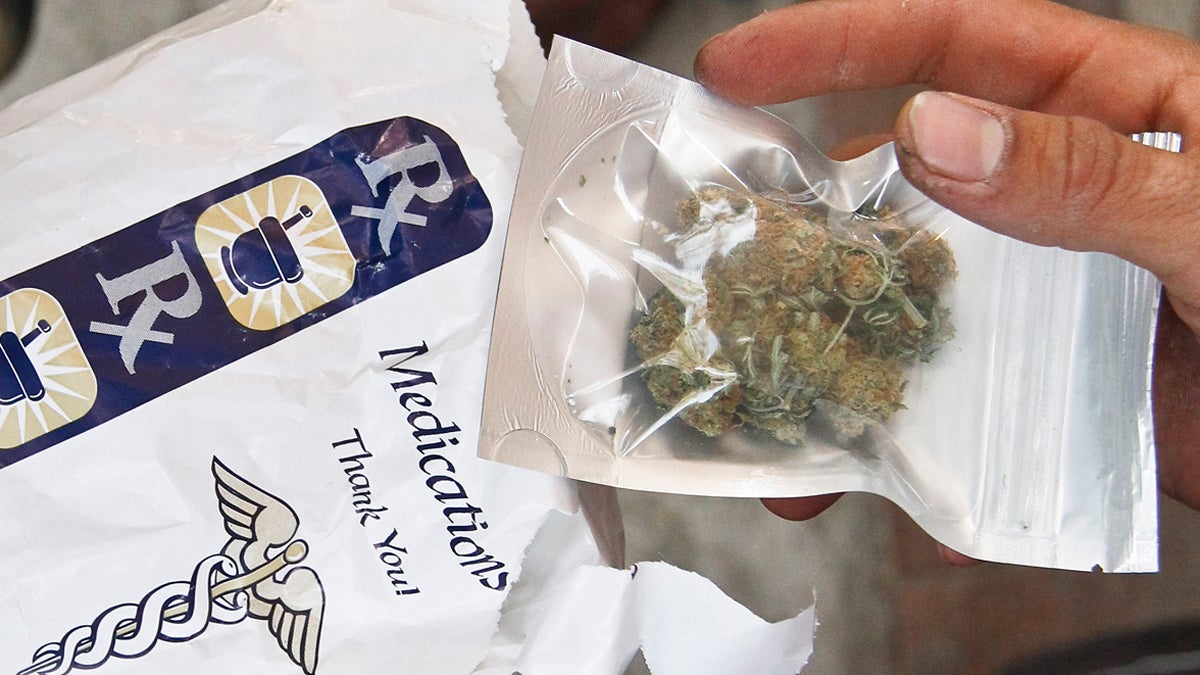Research says patients with neurological disorders get mixed results from medical marijuana

(Ross D. Franklin/AP File Photo)
Patients in New Jersey, Delaware and nearly half the states have access to medical marijuana, but is the drug actually reducing their symptoms? New research being presented this week in Philadelphia evaluates how well marijuana works for patients with neurological disorders.
It’s a mixed bag. That’s the best summary of what neurologists found when reviewing existing research on patients using marijuana to treat symptoms of disorders such as multiple sclerosis, or Parkinson’s. MS patients did experience some pain relief explained Dr. Barbara Koppel, the author of this review.
“Certain types of pain, including painful spasms, pain related to spasticity, and central pain, which is usually with burning and numbness,” Koppel said. She added that patients also found relief for overactive bladder symptoms. In these studies, patients took medical marijuana in pill or spray form.
Koppel presented her findings at the annual meeting of the American Academy of Neurology, which is taking place in Philadelphia this week.
With disorders other than MS, the findings were fuzzy. “The academy review also concluded that there was not enough information to show if medical marijuana is safe or effective in the following neurological disorders — the motor symptoms of Huntington’s, tics in Tourette’s syndrome, and seizures in epilepsy,” said Koppler.
Neurologist Gary Gronseth who also worked on this research was quick to make a distinction — not enough information does not mean medical marijuana definitely doesn’t work for these symptoms. Gronseth says there simply is not enough science yet in this field.
“We looked at over 1,000 studies when we reviewed this and 33 were of reasonable quality, so 33 for all neurological conditions, I think that tells you where we are with research,” Gronseth explained. “That’s why most of our conclusions are — we can’t tell whether this works or doesn’t work.”
Gronseth says more research is happening, but the field has a long way to go. He says the main take-away point for patients is this: “Know what we know, and know what we don’t know, and there’s a lot we don’t know!”
In these studies, patients took medical marijuana in pill or spray form. The review of research found some side effects with medical marijuana, including nausea, fatigue, increased weakness, dizziness, feelings of intoxication and mood changes.
WHYY is your source for fact-based, in-depth journalism and information. As a nonprofit organization, we rely on financial support from readers like you. Please give today.


